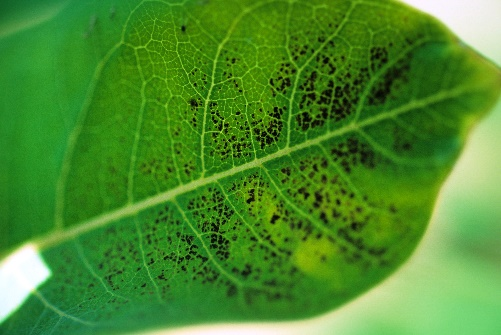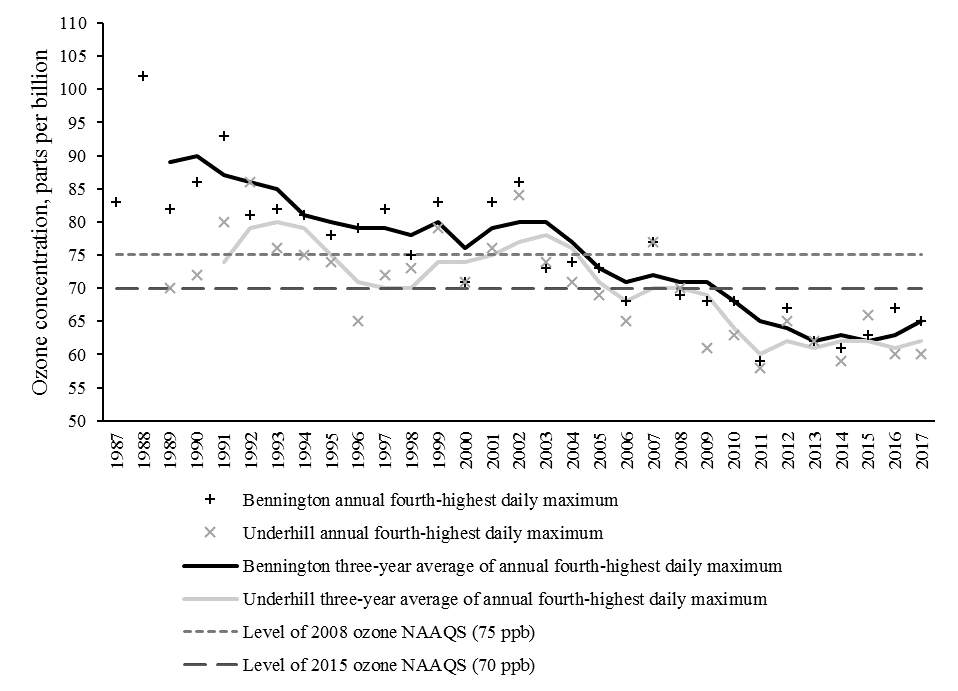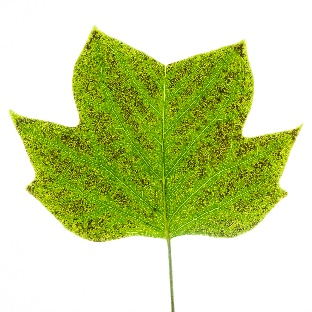Ozone
Monitoring Ozone Pollution Levels and Foliar Injury in Northern and Southern Vermont

Ozone is a colorless, odorless gas that occurs naturally in the stratosphere, where it helps protect us from harmful ultraviolet radiation. Closer to ground level, ozone pollution is formed from photochemical reactions of nitrogen oxides and hydrocarbons, and causes a range of adverse effects on human health and sensitive vegetation. The US EPA sets and periodically revises national ambient air quality standards for ozone and other commonly occurring air pollutants, including "primary standards" to protect human health, and "secondary standards" to protect the environment. The current primary ozone standard is based on the highest 8-hour concentration in a day. The form of the standard is based on the 4th highest daily 8-hour concentration in a year, averaged over a 3-year period. The level of the current primary standard is 70 parts per billion (ppb), and the secondary standard was set equal to the primary standard.
The Data
The Vermont Department of Environmental Conservation's Air Quality and Climate Division measures hourly ozone concentrations, year-round, at long-term monitoring sites in Bennington (generally representative of southern Vermont) and at the FEMC site in Underhill (generally representative of northern Vermont). While these two monitoring locations have effectively represented the northern and southern portions of the state for many years, another ozone monitor in the City of Rutland, in the central part of the state, began operation on April 1, 2016. It is too early to compare ozone design values from Rutland to the other sites, but preliminary data collected to date have averages within the range measured at Bennington and Underhill.
2016 in Summary
The most recent 2016 and 3-year average data for Bennington and Underhill are summarized in Table 6 below. The 4th highest 8-hour concentrations at the Underhill and Bennington sites were 60 and 67 ppb respectively. The 3-year averages of these 8-hour maximum values were 61 and 63 ppb – below the 70 ppb level of the current primary health standard.
Long-Term Trends
Long term trends in ozone in northern (Underhill) and southern (Bennington) Vermont are plotted in Figure 15 as rolling 3-year averages plotted on the last of the averaged years. Peak daily 8-hour concentrations - most relevant to human health effects – have declined from a range of 85-90 ppb in the early 1990s to 60-70 ppb more recently.

Implications
Substantial improvements have been observed in Vermont ozone concentrations over the past 20 years. These reductions reflect effective controls on emissions of hydrocarbons and nitrogen oxides from sources like power plants and motor vehicles – both within Vermont and in upwind urban and industrial regions.
Despite attaining the current ozone standard, the regionally episodic nature and the transport of ozone precursors (volatile organic compounds and nitrogen oxides) from upwind regions remain a serious threat to meeting the standard. Implementation of control measures on sources of ozone-forming precursor emissions across the United States is critical to eliminate the current widespread non-attainment of ozone standards in other, upwind areas and the resulting atmospheric transport that impacts human health and the environment downwind.
It should be noted that visible ozone injury symptoms are evidence of relatively extreme plant damage. Other effects - such as reduced photosynthesis, plant growth and carbon uptake, and increased susceptibility to disease and insect damage – can occur at ozone exposures lower than those which produce visible injury symptoms. No safe "threshold" concentration of ozone exposure has been identified below which no harmful environmental or human health effects are expected. Current ground level ozone exposures remain well above natural conditions, and further reductions will yield further benefits to the health of Vermont's forests. So while the substantial progress achieved over the past few decades is good news for Vermont's citizens and our environment, we should work to continue this progress into the future.

Vermont's ozone pollution has improved to levels where visible injury is rarely observed on our forest plants. However, plant health can still be affected at ozone exposures well below those which cause visible injury. Continued reductions are needed in the future.
Additional Resources
- Forest Inventory and Analysis Ozone Biomonitoring Program (active 1994-2010): http://www.nrs.fs.fed.us/fia/topics/ozone/
FEMC Project Database Link
- Ambient Air Monitoring for Ozone: https://www.uvm.edu/femc/data/archive/project/ambient-air-monitoring-for-ozone

